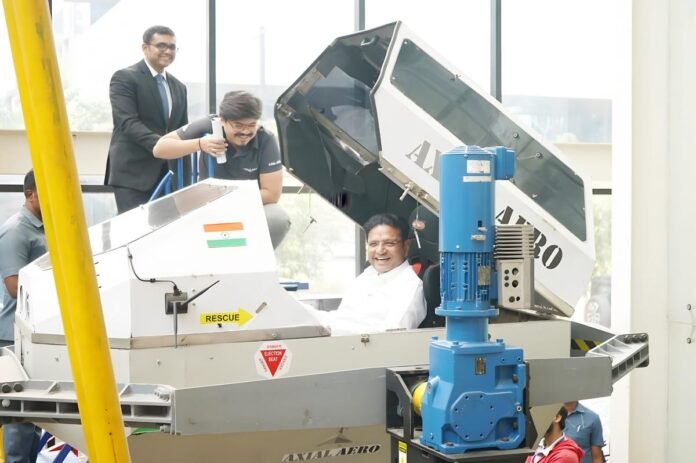New Delhi: Hyderabad-based T-Works, India’s largest hardware prototyping centre, is stepping into the high-technology defence sector with the development and manufacturing of advanced flight simulators for fighter aircraft. This strategic move aims to reduce the country’s reliance on costly imports from the US and Europe, where current-generation simulators are sourced at high expense, often running into hundreds of crores per unit.
The initiative focuses on building next-generation simulation platforms that can replicate the complexities of modern fighter cockpits and replicate real-world combat environments. These simulators will support both pilot training and mission rehearsal, enabling the Indian Air Force (IAF) and other defence stakeholders to rehearse diverse operational scenarios without the risks and expenses of live flying.
India presently imports a majority of flight simulators for combat and transport aircraft, making acquisition expensive and servicing dependent on foreign OEMs. By developing these systems domestically, T-Works’ program could cut costs by nearly one-third while also ensuring long-term self-reliance in maintenance, software upgrades, and mission-specific customisations.
The upcoming simulators are expected to integrate augmented reality (AR) and virtual reality (VR), advanced cockpit instrumentation, and physics-accurate aerodynamics models to ensure realistic training. Integration of AI-based enemy and environment modelling will help pilots prepare for dynamic threats, including electronic warfare scenarios. The systems are also expected to be modular, allowing adaptation for different aircraft platforms including Tejas, Su-30MKI, Rafale, and upcoming AMCA.
Local development of fighter simulators will provide significant strategic benefits. Apart from financial savings, India will no longer risk training disruptions due to export restrictions, licensing issues, or geopolitical shifts. The move also aligns with the Aatmanirbhar Bharat programme and the government’s ambition to make India a global hub for defence simulation exports.
T-Works’ leap into this domain offers opportunities for collaboration with HAL, DRDO, private defence start-ups, and the IAF’s training command. The ecosystem will benefit from the involvement of domestic component manufacturers, electronics developers, and software engineers, boosting local employment and innovation. Additionally, once validated, these simulators can be exported to Asian and African air forces that operate similar fighter platforms but face financial barriers in procuring Western simulators.
The project is still in its prototype stage, but T-Works aims to deliver an operational version within the next 24–30 months. If successful, it could lead to the establishment of a dedicated simulation manufacturing line in Hyderabad, positioning the city as a hub not only for aerospace manufacturing but also for defence training technologies. This step represents a crucial milestone in India’s journey toward defence technology autonomy.





